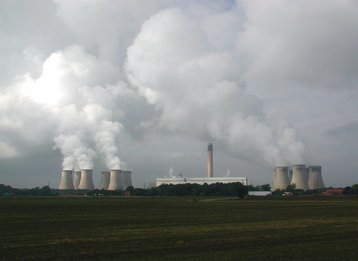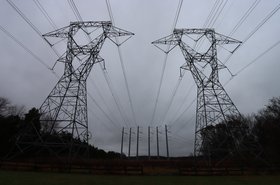By 2028, the UK will face a power crisis as the grid's guaranteed capacity will be less than power demands, according to a new report.
The crunch on capacity will be at its tightest in 2028, reaching 7.5GW, because the country is retiring old capacity faster than new resources can be brought online.
The situation is made worse by increasing demand for power, and delays to the Hinkley Point C nuclear plant, according to a report from power plant operator Drax.
Drax says the country needs to reduce demand, and invest more in nuclear power, along with dispatchable power such as biomass.
The report, ‘Mind the gap: Exploring Britain’s energy crunch’, was commissioned from consultants Public First by Drax Group, a company whose Yorkshire power station makes power from biomass via burning wood pellets.
The report says that at peak hours such as cold winter nights, the demand will be 7.5GW higher than the total of baseload capacity (which is continuously available like nuclear) and dispatchable power (like natural gas that can be switched on at will).
The situation is already difficult: in 2022, there was a gap of 4GW between secure dispatchable and baseload capacity and peak demand.
However, when non-baseload, non-dispatchable capacity such as wind and solar is taken into account, the system has headroom of around 5GW - which is lower than it has been in the last five years.
"The scale of the energy crunch will play out when National Grid ESO runs its T-4 Capacity Market Auction to procure sufficient power generating capacity to keep the lights on in 2027-28," said the Drax release. "The margin between target capacity the ESO wants to secure (44GW) and how much generation has entered the auction (43.4GW) is the tightest it has ever been since the auctions started ten years ago."
The generator says that energy security will be a key issue in the next parliamentary term, as a shortage of power in the UK will leave the country dependent on "intermittent power from international energy interconnectors and renewables like wind and solar."
Drax makes a plea to expand its generation capacity, which includes the biomass-powered Drax Power Station, pumped storage, and hydropower sites.
Drax's power station at Selby UK has been generating power since 1974, and converted to biomass after switching off its coal fired units in 2021. The site is planning to upgrade with carbon capture, providing biomass energy with carbon capture and storage (BECCS).
However, it was named as a "scandal" by a 2022 BBC Panorama program which revealed that the biomass it consumes is harvested from environmentally important forests in Canada.
“Drax plans to massively expand the generation capacity of Cruachan pumped storage power station in Scotland, some of which could be available to help bridge the power gap," says Richard Gwilliam, Drax Group’s UK BECCS program director. "Additionally, providing we secure the appropriate transitional support, our project to deliver two units of BECCS at our Selby site would also support energy security and decarbonization through the crunch and well into the future.”






